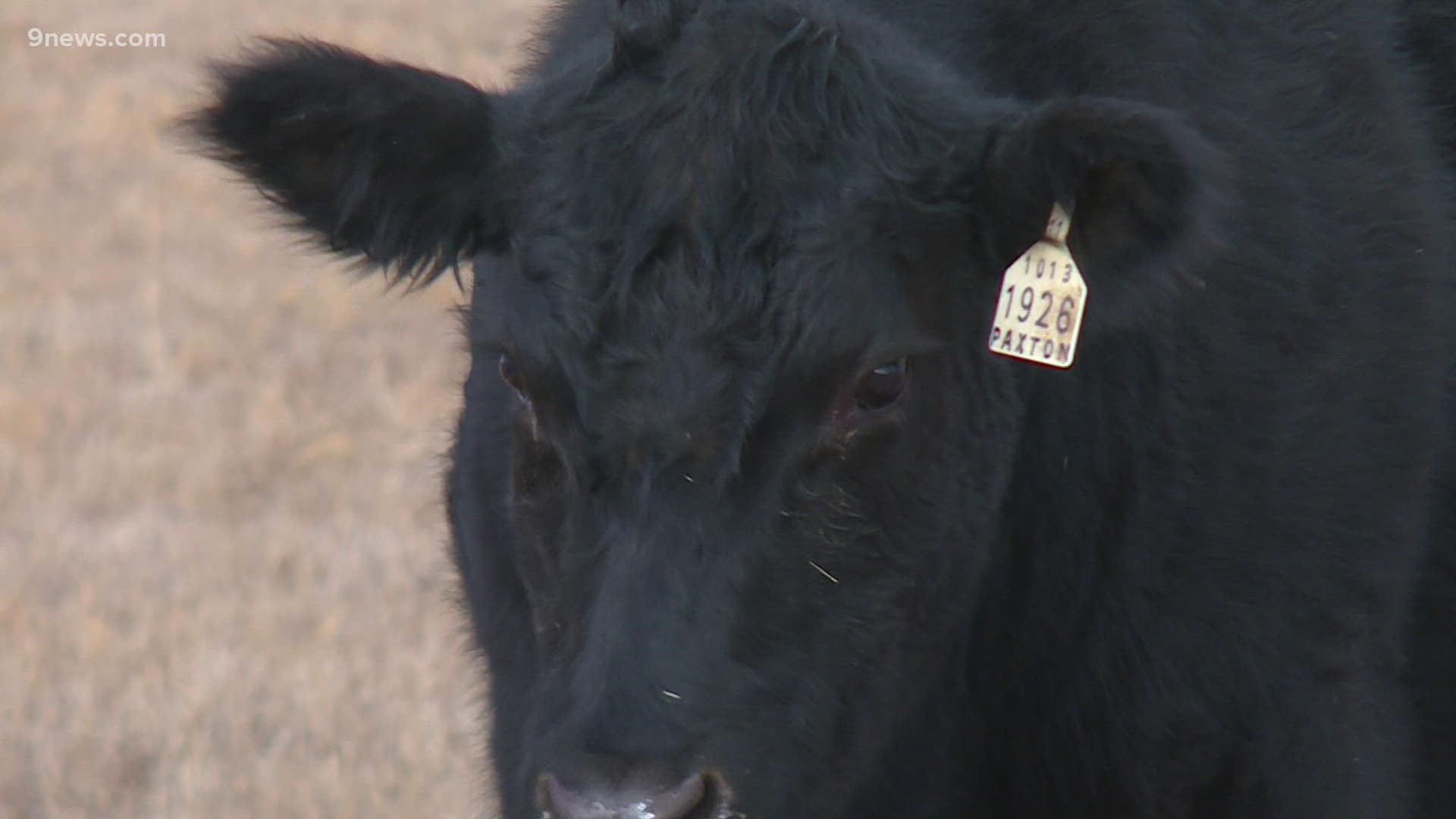FORT COLLINS, Colo. — Colorado’s cattle are getting fat.
A backlog at processing plants means ranchers who raise the cattle don’t have anywhere to take them when they’re fully grown. That means they stay on the ranch longer as they eat more and cost Colorado ranchers more money.
"If I could get them in today and get them processed, I could sell that beef," said Josh Ciardullo with Ciardullo Ranch in Larimer County. "It’s hard to sell it when people are calling wanting to get a half or whole beef and I tell them they have to wait six or seven months to get their product."
The ranches in northern Colorado can be as lucrative as they are beautiful. Ciardullo relies on his cattle to pay the bills.
"So the purple tag right there, he’s ready to go," he said pointing at one of the cattle on his property. "He’s market weight. That’s about 740 pounds of beef right there."
But small ranches like Ciardullo's are now struggling to turn their livestock into profit. Food processing companies are backed up across the state, forcing ranchers like him to keep their cattle longer, even if they’re ready to be sold to hungry customers.
"I’ll get at least two or three phone calls a week of people wanting to buy product, and I just try and be up front with them and let them know I still have customers that paid six months ago that are waiting on product," said Ciardullo. "There’s no money coming in, so it makes it hard to buy more cattle. Right now I need the money from the sale of these cattle to be able to buy calves for the following year."
The Colorado Cattlemen's Association said most of the back-ups now involve smaller food processing companies here in the state. Larger ones, like JBS in Greeley, used to have backups because of COVID, staffing challenges and even the cyber attack against the company, but they’ve been able to make it through the backlog.
"I think the backup is still more significant now than what we saw previous to the pandemic," said Terry Fankhauser, executive vice president of the association.
He said everything from COVID to staffing shortages, to supply chain issues, to smaller processors shutting down, is causing the backup. Part of the backup problem, he said, is also because demand has gone up for meat that comes directly from ranchers.
"More and more consumers, individuals, have sought to source directly from producers their meat," said Fankhauser.
Alan Wooten usually helps Ciardullo process his cattle. He’s a livestock harvester in Loveland. The small business he works at is backed up, just like the others.
"So what you’re seeing is an oversaturation of fat cattle in the market," said Wooten. "There’s no break. It’s one after another, after another, after another."
Small ranchers represent a big part of the cattle industry in Colorado. Most don’t take the cattle to big processing plants like JBS.
Ciardullo can’t buy more cattle to keep the ranch going until he makes money by selling the ones he already has.
"All we can do is hurry up and wait," said Ciardullo. "You don’t want to cut quality, so we’re trying to figure out ways to cut costs and just kind of hang in there until we can start getting the meat sold and get some revenue back into the business."
SUGGESTED VIDEOS: Full Episodes of Next with Kyle Clark

